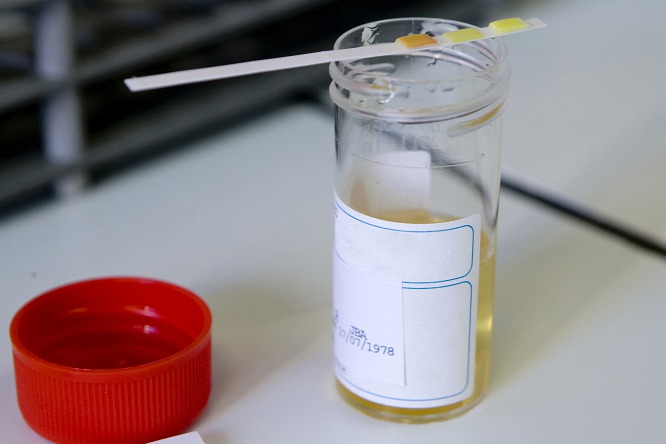

Sometimes you can do this at home and take the jar with your urine sample to your doctor’s or midwife’s consulting rooms. The test usually involves you urinating into a small jar. You might be offered a urine test at other times during pregnancy as well. Some urine infections don’t have symptoms, so a urine test is recommended at your first antenatal appointment to check whether you have an infection. You might be referred to a specialist pregnancy clinic and diabetes educator for help with managing your diabetes. If the diabetes isn’t managed carefully, it can cause serious problems for you and your baby. Most women can have healthy pregnancies and babies when gestational diabetes is managed well. If you have gestational diabetes, it means you have a complex pregnancy and need additional care and management. If you have high blood sugar levels on a glucose tolerance test, you’ll be diagnosed with gestational diabetes. You have your blood tested twice more – after 1 hour and after 2 hours. Your blood is tested, and then you drink 75 gm of glucose in a sugary drink. The test usually involves a glucose tolerance test (GTT), where you have to fast (not eat or drink) overnight.
#DO THEY DRUG TEST YOUR URINE AT PRENATAL VISITS PROFESSIONAL#
If you’ve had gestational diabetes in a previous pregnancy or you have a high chance of getting this condition, your health professional will probably suggest you have the test earlier. The blood test for gestational diabetes is usually done at 24-28 weeks of pregnancy. You’ll be offered another Anti-D injection if your baby is Rh-positive. This reduces the risk of health problems for your baby.Īfter your baby is born, blood is collected from your baby’s umbilical cord and the Rh type is checked. You’ll also be offered Anti-D if you have bleeding during pregnancy. So if you’re Rh-negative, you’ll be offered a special injection called Anti-D at your 26-28 week antenatal appointment and your 34-36 week appointment. But no-one knows what your baby’s blood type is until after birth. If you’re Rh-negative, and your baby turns out to be Rh-positive, this might cause serious health problems for your baby. It’s important to test your blood to find out your blood type and Rh type. Depending on your results, your health professional will let you know about the best treatment for you in pregnancy or straight after the birth. These include your rubella immunity, and whether you have anaemia, HIV, hepatitis B, hepatitis C or syphilis. Your doctor or midwife will want to do a blood test in early pregnancy to find out your blood type and check for some infections and other health concerns. It’s worth thinking about how you might feel if your ultrasounds show anomalies. But other anomalies can be a sign of serious disability. Some anomalies aren’t serious and won’t need much, if any, treatment. Most ultrasounds show that babies are developing well, but sometimes ultrasounds can pick up developmental anomalies. Later in pregnancy, you might have extra ultrasounds if you have a medical condition, you’ve had problems in previous pregnancies, there’s uncertainty about your pregnancy dates, or you’re expecting twins or multiples. These symptoms might be – but aren’t always – a sign of miscarriage early in pregnancy. In early pregnancy, your doctor or midwife might recommend an ultrasound scan if you have bleeding from your vagina or abdominal pain.

You’ll be offered routine pregnancy ultrasound scans in: The results will be sent to your doctor or midwife and possibly to you as well. Your doctor or midwife might send you to a private clinic or public hospital department for these ultrasound scans. You’ll probably have at least 2 ultrasound scans during your pregnancy.


Tests for chromosomal anomalies and other conditions are different from the routine health and development tests described in this article. In pregnancy, you can also have screening and diagnostic tests for chromosomal anomalies and other conditions in your baby. It’s OK to ask them for more information about tests – what they’re for, why you need them, and what could happen if you do or don’t have them. Your doctor or midwife needs your permission to do tests in pregnancy. The results of these tests help you and your doctor or midwife plan your options for pregnancy care and birth. You might be offered additional tests if you have certain risk factors or conditions. Your doctor or midwife will recommend routine tests that are offered to all pregnant women. These could be ultrasound, blood, urine and swab tests. During your pregnancy, your doctor or midwife might recommend that you have some tests to check your health and your baby’s health and development.


 0 kommentar(er)
0 kommentar(er)
